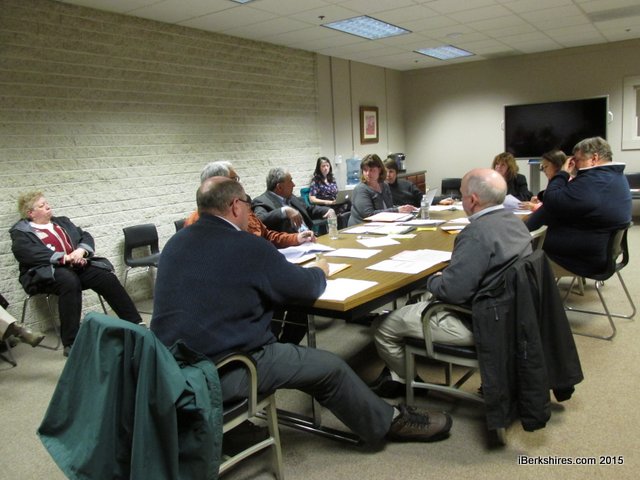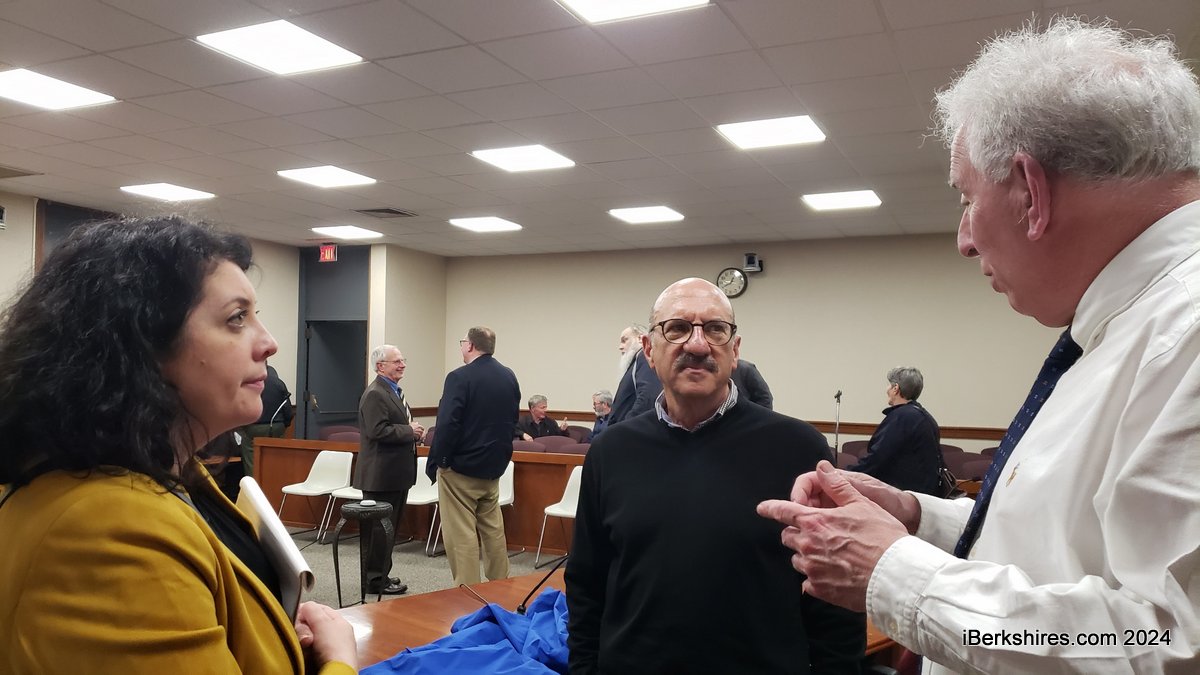North Adams School Officials Back Coalition Protesting Mandates, Testing
 The School Committee voted to endorse a coalition asking the state to provide relief from unfunded mandates and excessive regulation. The School Committee voted to endorse a coalition asking the state to provide relief from unfunded mandates and excessive regulation. |
NORTH ADAMS, Mass. — The School Committee unanimously endorsed the mission goals of a recently created educational coalition formed to voice concerns on unfunded mandates and excessive testing.
The Western Massachusetts Educational Leaders Coalition, primarily made up of a schools in the Pioneer Valley, formed last summer. Comprised of nine superintendents, a dozen school committee members representing 10 districts and the executive directors of two educational collaboratives, the coalition is hoping to impress upon the state the obstacles and challenges being forced on local school districts to the detriment of their students' education.
The coalition's frustration is with "the amount, unrealistic pace and unmanagable cost of a variety of required state and federal initiatives," according to its statement.
School Committee John Hockridge, who presented the mission statement, said the coalition was being supported by the Massachusetts Association of School Committees and is reaching out to other school districts to "provide as large and unified a voice as possible."
Among the more recent issues being brought to bear on local districts is the implementation of the new Common Core standards, the new framework for teacher evaluations, new "District Determined Measures" assessments and new standardized testing through the Partnership for Assessment of Readiness for College and Careers.
"All these mandates that have come down over the years have come from outside of us ... it's not coming from the school committee, not coming from the teachers, not coming from school administration," Hockridge said. "It's coming from DESE and others — legislators and those outside the school environment.
"I just kind of feel we've sat back and taken it all over the years and done the best we can. ... What this is saying is it's become too much for a lot of us and for the school system in general."
Fellow committee members agreed, with Lawrence Taft saying one of the most common concerns of teachers in contract negotiations is the time spent on preparing standardized testing and assessments.
"They're doing too much testing, there's too many initiatives, they can't keep up with the initiatives," he said, adding he "personally endorsed" the statement.
Based on testimony from MASC Executive Director Tom Scott in the statement, the Department of Elementary and Secondary Educuation between 1996 and 2008 had promulgated 4,055 documents requiring school district action. Between 2009 and 2013, that number increased dramatically to 5,382, or an average of 1,077 multipage documents a year.
Children are subjected to 23 different standardized tests; between Grades 3 and 10, the average child will sit for 39 test sessions. About 10 days per school year are spent administering and scheduling tests; Drury High Principal Amy Meehan thought it closer to 25 at the high school level.
Superintendent James Montepare estimated that some 70 days out of the 180-day school year are tied up with MCAS testing, assessments or teacher evaluations.
There's also the cost: About $35 million a year is spent on Massachusetts Comprehensive Assessment System testing, according to the Brookings Institute. Administrators are also concerned about the possible implementation of the Partnership for Assessment of Readiness for College and Careers testing that will be done online - with school districts picking up the tab for new technology.
Hockridge said there is a lot of concern on both the left and right political spectrum about Common Core and mandates. It's not a political stance, he said, but concern over issues that directly impact students, teachers and taxpayers.
"Give us a break. ... Let's find a way to create a quality learning environment without these obstacles you keep putting in our way," he said.
The committee voted to endorse the statement to give Hockridge support as he reaches out to other school districts in the Berkshires.
In other business, the committee discussed the latest "Condition of Education in the Commonwealth" published by the Rennie Center for Education Research and Policy.
Montepare said the school district had been working on the reports goals for some time.
"It's very simple: all supports will end up in the classroom providing primary program for all students; keep kids actively engaged and on track for graduation and college," he said. "This is not a new concept."
Some of these ideals were first implemented at Johnson School in 1993 and then Brayton a year later, ecompassing the school district to ensure all instruction if all possible is done in the classroom. The school system also provides a wide array of extracurricular activities and supports.
Taft said he read the report expecting to see North Adams cited at the end because many of the recommendations were already in place.
Vice Chairwoman Heather Boulger said a representative from DESE had been "blown away" by a visit to Drury's College and Career Readiness Center. Committee members agreed they needed to market the school system's best elements, such as community service learning, career readiness and its expansive arts program.
Tags: MCAS, North Adams School Committee, PARCC, unfunded mandates,
















